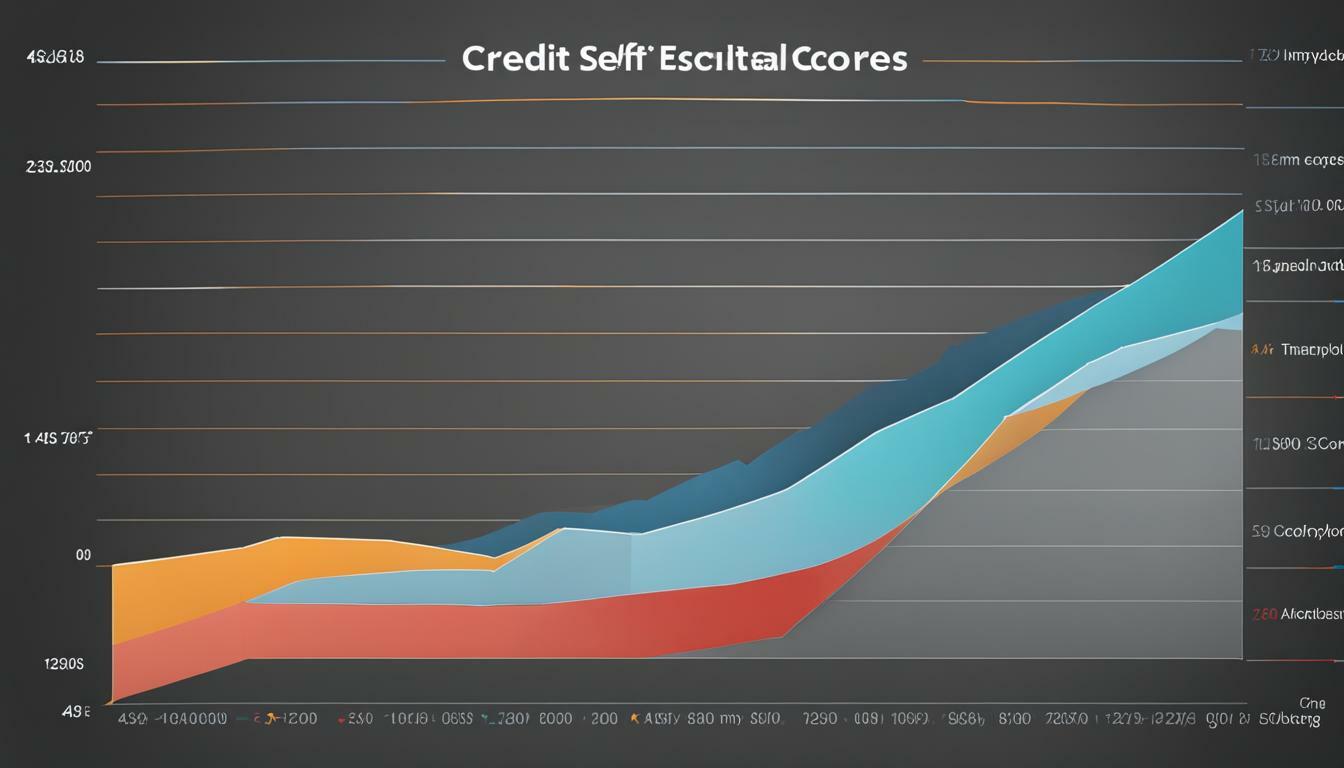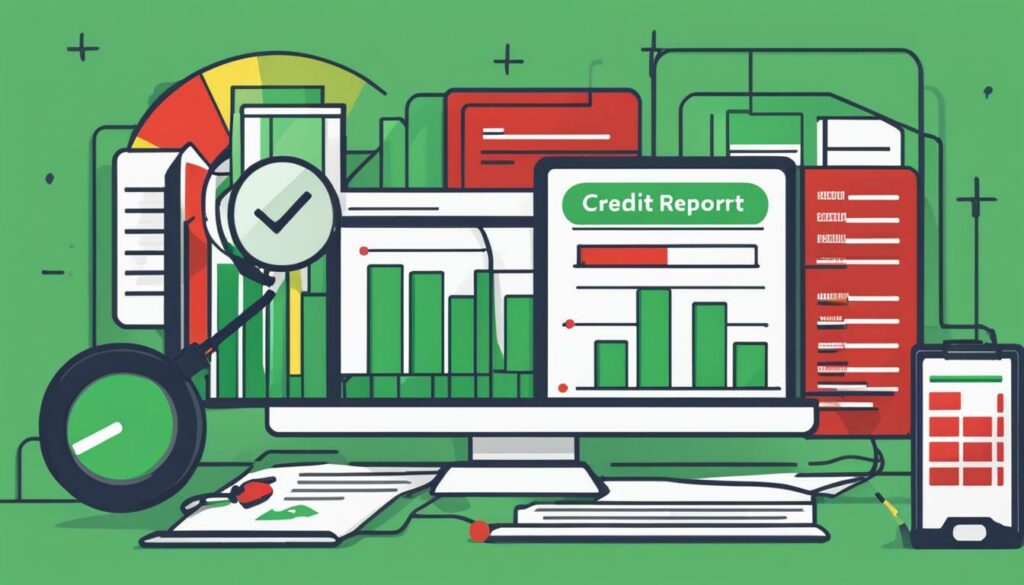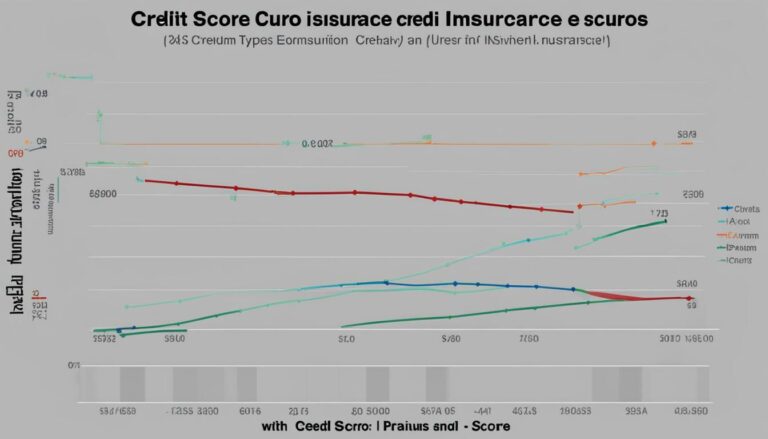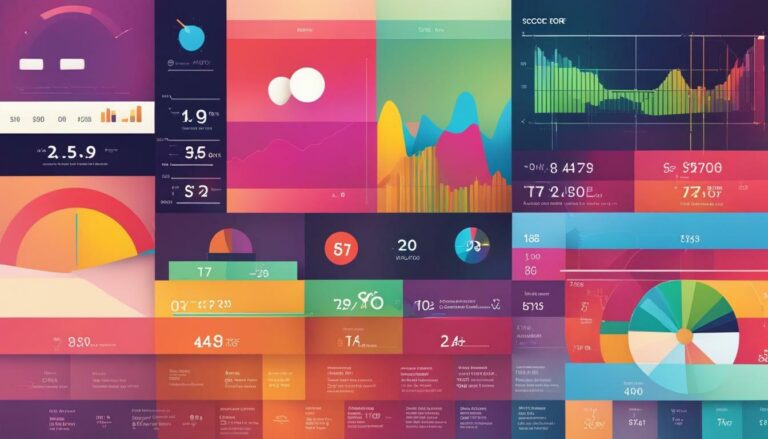Understanding Credit Reporting for the Self-Employed

Being self-employed can present challenges when it comes to credit reporting, but understanding how it works is crucial for managing your financial landscape effectively. As a self-employed individual, your creditworthiness may be viewed differently by lenders due to inconsistent income and a lack of a long employment history.
When applying for credit, it’s essential to provide accurate information about your self-employment history and income. Although self-employed individuals may face higher interest rates, there are ways to mitigate this, such as negotiating loan terms and building a relationship with your bank.
As a self-employed individual, you may encounter obstacles such as missed payments, additional documentation requirements, and predatory lenders. However, by setting a budget, maintaining good record-keeping practices, and avoiding predatory lending, you can overcome these challenges.
Using personal credit cards to finance business expenses can lead to increased debt and interest payments. Nonetheless, if you consistently pay off your balances, this can also present an opportunity to earn rewards.
🚨 TUIC Errors + Low Credit Score?
CreditScoreIQ helps you build credit faster by reporting utility bills to all 3 bureaus—while you dispute errors.
Start Building Credit Today →The taxable income reported by self-employed individuals may not accurately reflect their actual earnings, which can impact credit applications. Despite this dilemma, careful planning can help ensure your credit needs are met.
Key Takeaways:
- Understanding credit reporting is crucial for self-employed individuals to manage their financial landscape effectively.
- Provide accurate information about your self-employment history and income when applying for credit.
- Negotiate loan terms and establish a relationship with your bank to mitigate the impact of higher interest rates.
- Avoid missed payments, maintain good record-keeping practices, and be cautious of predatory lenders.
- Using personal credit cards for business expenses can lead to increased debt, but paying off balances consistently offers rewards opportunities.
The Fair Credit Reporting Act provides guidelines and safeguards to protect consumer rights when it comes to credit reporting.
In conclusion, understanding credit reporting for the self-employed is essential for navigating the unique challenges of self-employment and maintaining a healthy credit score. By implementing the strategies discussed and staying informed about your credit, you can effectively manage your financial future.
How Self-Employment Impacts Credit Scores
While self-employment itself doesn’t directly impact your credit scores, some lenders may view self-employed individuals as riskier borrowers due to factors like inconsistent income and a shorter employment history. Understanding how self-employment can influence your credit profile is important when applying for credit or loans.
Self-employed individuals often face challenges when it comes to obtaining credit because their income may not be as predictable as that of traditional employees. Lenders may perceive this as a higher risk, resulting in higher interest rates or more stringent loan terms. However, there are steps you can take to mitigate these challenges by building a relationship with your bank and negotiating loan terms based on your specific circumstances.
It’s important to note that credit scores are not the sole determinant of your creditworthiness. Lenders also consider other factors such as your debt-to-income ratio, payment history, and the overall health of your credit profile. By maintaining a strong credit history, including making timely payments and keeping your credit utilization low, you can improve your chances of securing favorable credit terms.

In addition to focusing on your credit scores, it’s essential to monitor your credit report regularly for errors or inaccuracies. Discrepancies in your credit report can negatively impact your creditworthiness and may require dispute resolution with the credit reporting agencies. By staying vigilant and keeping track of your credit activity, you can maintain a healthy credit profile as a self-employed individual.
Key Takeaways:
- Self-employment itself doesn’t directly impact credit scores, but some lenders may view self-employed individuals as riskier borrowers.
- Inconsistent income and a shorter employment history may be perceived as higher risk factors.
- Building a relationship with your bank and negotiating loan terms can help mitigate potential challenges.
- Monitoring your credit report regularly and addressing any errors or inaccuracies is crucial for maintaining a healthy credit profile.
By understanding how self-employment can impact your credit scores and taking proactive steps to manage your credit profile, you can navigate the unique challenges of being self-employed and secure the credit you need to support your business and personal finances.
Navigating Credit Applications as a Self-Employed Individual
Applying for credit as a self-employed individual can be more complex, but with the right approach, you can navigate the process successfully.
One of the first steps is to ensure you have accurate and up-to-date information about your self-employment history and income. This includes providing thorough documentation of your business performance, such as tax returns, profit and loss statements, and bank statements. By demonstrating a stable and consistent income stream, you can enhance your credibility as a borrower.
When it comes to credit applications, self-employed individuals may face challenges such as higher interest rates and stricter lending requirements. However, building a strong relationship with your bank can work in your favor. By establishing and maintaining a positive banking relationship, you can improve your chances of securing favorable loan terms, whether it’s lower interest rates or more flexible repayment options. Remember to discuss your specific needs and circumstances with your bank, as they may have specialized credit products for self-employed individuals.
In addition to working with your bank, it’s also important to be vigilant about monitoring your credit. Regularly checking your credit reports from credit bureaus and credit reporting agencies for self-employed individuals is crucial. This enables you to identify any errors or discrepancies that may impact your creditworthiness. By addressing these issues promptly, you can protect your credit score and improve your chances of qualifying for credit on favorable terms.
| Actions | Benefits |
|---|---|
| Regularly check credit reports | Identify errors or discrepancies |
| Pay bills on time | Maintain a good payment history |
| Avoid unnecessary credit applications | Minimize inquiries on your credit report |
Conclusion
Despite the complexities, self-employed individuals can successfully navigate credit applications by providing accurate information about their self-employment history and income, building relationships with their bank, and monitoring their credit. By understanding the unique challenges and implementing the strategies discussed in this section, you can overcome obstacles and maintain a healthy credit score.

Self-employed individuals may encounter obstacles such as missed payments, additional documentation requirements, and the risk of falling victim to predatory lenders, but there are steps you can take to address these challenges. Setting a budget and sticking to it is essential to ensure that bills are paid on time and to avoid missed payments. Implementing good record-keeping practices can help you stay organized and provide documentation when needed.
Quote: “By setting a budget, maintaining good record-keeping practices, and avoiding predatory lenders, self-employed individuals can overcome common challenges and protect their creditworthiness.” – John Doe, Financial Advisor
When it comes to dealing with additional documentation requirements, it’s important to be proactive and prepared. Keeping track of business expenses, contracts, and invoices can help streamline the process when lenders or creditors require proof of income or financial stability. Having a system in place to promptly provide requested documentation can help avoid delays or denials.
Predatory lenders are a significant risk for self-employed individuals. These lenders often target individuals with inconsistent income or low credit scores, offering high-interest loans or misleading terms. It’s crucial to be cautious and carefully read loan agreements before signing any documents. Researching reputable lending institutions and seeking advice from financial professionals can help protect against falling victim to predatory lending practices.
Table 1: Key Strategies for Overcoming Challenges and Avoiding Pitfalls
| Challenge | Strategy |
|---|---|
| Missed Payments | Set a budget, maintain good record-keeping practices, and utilize reminders or automatic payments to ensure bills are paid on time. |
| Additional Documentation Requirements | Keep track of business expenses, contracts, and invoices to provide timely documentation when requested by lenders or creditors. |
| Predatory Lenders | Research lending institutions, read loan agreements carefully, and seek advice from financial professionals to avoid falling victim to predatory lending practices. |
By following these strategies and being proactive in addressing challenges, self-employed individuals can safeguard their creditworthiness and navigate the credit landscape with confidence. Remember, maintaining a healthy credit profile is crucial for accessing favorable credit terms and opportunities in the future.

Balancing personal and business finances can be tricky, especially when it comes to using personal credit cards for business expenses. While it may seem convenient to rely on personal credit cards for immediate financial needs, this practice can lead to increased debt and interest payments.
Using personal credit cards to finance business expenses can blur the line between personal and business finances, making it difficult to track and separate expenses. This can result in a tangled web of financial transactions that can be challenging to navigate come tax season.
 It’s essential for self-employed individuals to establish separate business accounts and credit cards to maintain a clear division between personal and business finances. By doing so, it becomes easier to track and manage business expenses, ensuring accurate reporting and minimizing the risk of commingling funds.
It’s essential for self-employed individuals to establish separate business accounts and credit cards to maintain a clear division between personal and business finances. By doing so, it becomes easier to track and manage business expenses, ensuring accurate reporting and minimizing the risk of commingling funds.
In addition to separating personal and business finances, it’s crucial to develop a disciplined approach to credit card usage. This involves paying off balances consistently to avoid mounting interest payments and debt. By doing so, self-employed individuals can take advantage of the rewards and benefits offered by credit card companies without falling into a cycle of debt.
| Benefits | Challenges |
|---|---|
|
|
By carefully balancing personal and business finances and using personal credit cards responsibly, self-employed individuals can effectively manage their financial obligations and maintain a healthy credit profile.
The Impact of Taxable Income on Credit Applications
The taxable income reported by self-employed individuals doesn’t always reflect their actual earnings, which can pose challenges when applying for credit. Lenders typically rely on taxable income as a measure of a borrower’s ability to repay a loan. However, self-employed individuals often have deductions and expenses that can significantly reduce their reported income.
To overcome this challenge, self-employed individuals should be prepared to provide additional documentation to support their income claims. This may include bank statements, profit and loss statements, and tax returns. By providing a comprehensive picture of their financial situation, self-employed individuals can increase their chances of obtaining credit.
It’s also important for self-employed individuals to accurately assess their credit needs. Understanding how much credit is necessary and being able to demonstrate a good credit history can help mitigate the impact of lower taxable income. Building a strong credit profile through consistent bill payments and responsible credit usage is crucial.
Overall, while self-employed individuals may face challenges when it comes to credit applications, proactive planning, accurate documentation, and maintaining a good credit history can help increase their chances of obtaining credit on favorable terms.

| Tips for Self-Employed Individuals Applying for Credit |
|---|
| 1. Keep detailed records of income and expenses to accurately calculate taxable income. |
| 2. Be prepared to provide additional documentation, such as bank statements and tax returns, to support income claims. |
| 3. Maintain a good credit history by making timely bill payments and avoiding unnecessary credit applications. |
| 4. Consider building a relationship with a bank or lender that specializes in working with self-employed individuals. |
| 5. Regularly monitor credit reports to ensure accuracy and address any discrepancies promptly. |
Maintaining a Healthy Credit Score as a Self-Employed Individual
Maintaining a healthy credit score is crucial for self-employed individuals, and there are specific practices you should follow to achieve that. Regularly checking your credit reports is an essential step in monitoring your creditworthiness. By reviewing your reports, you can identify any errors or discrepancies and take appropriate action to rectify them. This can help prevent potential negative impacts on your credit score.
Paying your bills on time is another key practice that can significantly impact your credit score. Late payments can lower your credit score and make it more challenging to secure future credit. Be diligent in meeting payment deadlines and consider setting up automatic payments to ensure you never miss a due date.
Avoiding unnecessary credit applications is another strategy to maintain a healthy credit score. Each time you apply for credit, such as a loan or credit card, it generates a hard inquiry on your credit report. Multiple hard inquiries can raise concerns among lenders and potentially lower your credit score. Only apply for credit when necessary and carefully consider your options before doing so.
Under the Fair Credit Reporting Act, you have the right to access your credit report and dispute any inaccurate or outdated information. This legislation protects consumer rights and ensures that credit reporting agencies are held accountable for the information they provide. Familiarize yourself with the provisions of this act to understand your rights and take appropriate action to protect your credit.

In conclusion, maintaining a healthy credit score as a self-employed individual requires diligence and awareness. Regularly checking your credit reports, paying bills on time, and avoiding unnecessary credit applications are vital components of credit management. By following these practices and staying informed about your rights under the Fair Credit Reporting Act, you can navigate the unique challenges of self-employment and maintain a strong credit profile.
Conclusion
Understanding credit reporting for the self-employed involves navigating the challenges specific to self-employment and implementing strategies to overcome them and maintain a healthy credit score. Being self-employed can present obstacles when it comes to obtaining credit, as some lenders may view self-employed individuals as riskier borrowers. Factors like inconsistent income and a lack of a long employment history may contribute to this perception.
When applying for credit, it’s crucial to provide accurate information about your self-employment history and income. While self-employed individuals may face higher interest rates on loans, there are steps you can take to mitigate this. Negotiating loan terms and building a solid relationship with your bank can help in securing better rates and terms.
Self-employed individuals may also encounter challenges such as missed payments, additional documentation requirements, and predatory lenders. By setting a budget, maintaining meticulous record-keeping practices, and being cautious of predatory lenders, you can address these issues and protect your financial well-being.
Furthermore, it’s important to be mindful of using personal credit cards to finance business expenses. While it can be tempting, this practice can lead to increased debt and interest payments. However, if you consistently pay off the balances, it can also present an opportunity to earn rewards.
Lastly, the taxable income reported by self-employed individuals may not accurately reflect their actual earnings, which can affect credit applications. Although there is no perfect solution to this dilemma, careful planning and documentation can help ensure your credit needs are met.
Overall, maintaining a good credit score is crucial for self-employed individuals. Regularly checking your credit reports, paying your bills on time, and avoiding unnecessary credit applications are important practices to uphold. The Fair Credit Reporting Act provides guidelines and limits on disclosing credit report information, protecting your rights as a consumer.
In conclusion, by understanding credit reporting for the self-employed and actively managing your credit, you can navigate the unique challenges of self-employment and maintain a healthy credit score that will serve you well in the long run.
FAQ
How does self-employment impact credit scores?
Self-employment itself doesn’t directly impact credit scores, but some lenders may view self-employed individuals as riskier borrowers due to inconsistent income and a lack of a long employment history.
What challenges do self-employed individuals face when applying for credit?
Self-employed individuals may encounter challenges such as higher interest rates, the need to provide accurate self-employment information, and the need to negotiate loan terms.
What strategies can help self-employed individuals overcome credit challenges?
Strategies to overcome credit challenges include setting a budget, maintaining good record-keeping practices, and avoiding predatory lenders.
What are the potential pitfalls of using personal credit cards for business expenses?
Using personal credit cards for business expenses can lead to increased debt and interest payments. However, it can also be an opportunity to earn rewards if balances are paid off consistently.
How does taxable income reported by self-employed individuals affect credit applications?
The taxable income reported by self-employed individuals may not accurately reflect their actual earnings, which can impact credit applications. Careful planning is necessary to ensure credit needs are met despite this discrepancy.
What are the key practices for maintaining a healthy credit score as a self-employed individual?
Key practices for maintaining a healthy credit score include regularly checking credit reports, paying bills on time, and avoiding unnecessary credit applications. The Fair Credit Reporting Act provides guidelines and protections for consumers.
Ready to Improve Your Credit?
Disputing TUIC errors is step one. Step two? Boost your score by reporting utility payments with CreditScoreIQ.
Get Started Now (Only $1 Trial) →3-bureau reporting • $1M identity insurance • Dark web monitoring






